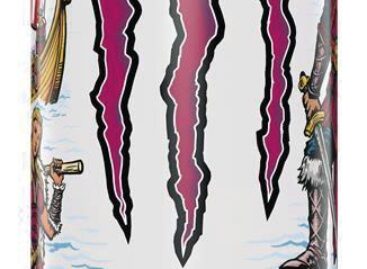From neutral to characteristic
Nowadays old, long-established vodka brands are surprising consumers with creative ideas and new approaches, just like young, innovative companies do.
This article is available for reading in Trade magazin 2024/8-9
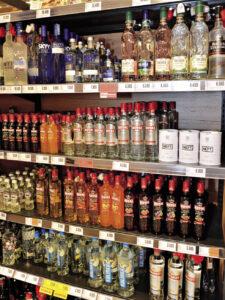
Vodka remains the most popular spirit in Hungary
The change is most visible in the craft vodka movement. After decades when neutrality was key, craft vodka producers are increasingly focused on making vodka more authentic. Distillers have personal control over every step of the production process – from harvesting to bottling. The result: delicious vodkas with a special flavour profile. They are usually produced in small batches, as this makes experimentation with rare ingredients possible.
Premiumisation also allows distillers to reach new, high-end target groups. They are trying to differentiate themselves from competitors with specific flavour profiles, sophisticated distillation and filtration methods, high-quality ingredients, and bottles are becoming more stylish, too. Demand for flavoured vodkas is unbroken.
The domestic market
Vodka is still the most popular spirit in Hungary, with local brands dominating the market. In 2023 category sales were down a little: the mainstream segment contracted, premium and premium+ grew, while sales of flavoured vodkas stagnated.

Piri Attila
marketingigazgató
Heinemann
“According to an IWSR report, the vodka category decreased by 5% in 2023, while alcohol volume sales fell by 3%, but vodka is still the second largest category in the Hungarian spirits market behind pálinka”,
analyses Attila Piri, marketing director of Heinemann.
The company’s portfolio includes Beluga, Three Sixty and Haku vodka. Beluga and Japanese vodka Haku represent the super-premium category. This summer brought the debut of the Beluga Botanical range, which consists of 3 products: Cucumber&Mint, Pear&Lime and Rose&Lime.
“For vodka brands it is particularly important to differentiate themselves from competitors. Several blind tests have shown that there is no big difference in taste between brands in a given segment – it is the brand name that is decisive”,
says Dávid Gábor Kovács, marketing director of Zwack.
Zwack produces Kalinka vodka, which is one of the leading players in the so-called value-for-money category. They market three premium vodkas, Smirnoff, Ketel One and CÎROC – the latter is a modern luxury vodka made from French grapes, with a distinctively refreshing fruity taste.
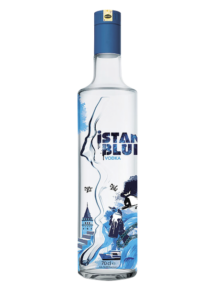
A truly 21st century product development: Turkish Istanblue vodka not only draws one’s attention by its witty name, but also by its packaging recognised by Red Dot. In addition to its name, the bottle’s appearance also refers to the “birthplace” of the drink: the graffiti-style decoration evokes the culture of the two halves of the city, and the dent in the bottle depicts the Bosphorus.
Taste and origin

Zoltán Kedves
coffee and premium spirits business director
Coca-Cola HBC
“Vodka’s role continues to be dominant in Hungary, so it is important to adapt to consumer trends shaping the market. Cocktails and long drinks are becoming popular in Hungary, for instance the light, lower alcohol drinks in the Finlandia Botanical range can be enjoyed neat, but the best taste experience is in a long drink, mixed together”,
points out Zoltán Kedves, coffee and premium spirits business director of Coca-Cola HBC Magyarország.
Coca-Cola HBC Magyarország sells premium vodkas, including Finlandia and super-premium Grey Goose. The Finlandia Botanical range is currently available in 2 flavours, Cucumber & Mint, Wildberry & Rose.

András Tripolszky
commercial and marketing director
Dunapro
“Although the rise of rum and tequila is clearly felt and gin is still in its heyday, volume sales of these spirits is negligible compared to vodka, so the category’s leadership isn’t threatened by other products”,
argues András Tripolszky, Dunapro’s commercial and marketing director in Central Europe.
The company’s newest brand is NEFT vodka, a “flavour forward” product with the sweetness and spiciness of rye coming through after a very smooth and delicious first sip. NEFT is a pioneering innovation among super-premium vodkas. SKYY vodka is produced in San Francisco by the Campari group. This is the leading vodka in the state of California, which is available worldwide, in special blue bottle.
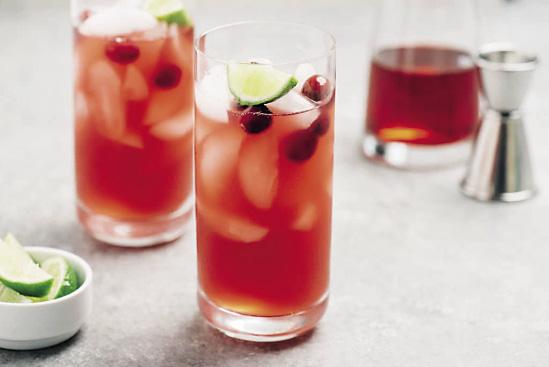
Vodkas with unique flavours
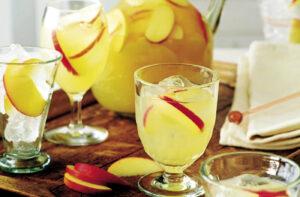
inspire new cocktails
Perfect cocktail base

Zoltán Németh
online shop manager
Mr. Alkohol
“Vodka is still one of the easiest base spirits to mix and is a favourite of both professional and amateur bartenders, because it doesn’t overload the taste buds, so it can be enjoyed faster than a rum or whisky”,
explains Zoltán Németh, manager of online shop Mr. Alkohol.
The company tries to favour vodkas with character. At the moment, Mr. Alkohol’s portfolio includes Pravda vodka, which is a high quality brand in an affordable price range. Flavoured vodkas are always in the market and their success is unbroken, and there are several popular flavours in the Pravda portfolio too. Attila Piri told that flavoured vodka sales are growing, but their share is usually not higher than 10-15% of the volume sales of a brand’s classic variant. Dávid Gábor Kovács added that there is a growing trend in the low-calorie spirits segment and vodka’s inherently low-calorie nature is one of the reasons for its growing popularity. In bars vodkas are still mainly consumed as an ingredient in cocktails.
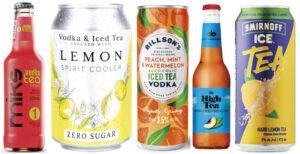
One of the new favourites among vodka-based RTDs is the vodka and icetea mix, which is also eyed by major brands
New directions
Zoltán Kedves revealed that as far as ready-to-drink alcoholic RTD beverages are concerned, they see them now as an international trend, which will sooner or later reach Hungary. András Tripolszky opined that flavoured products are doing very well in the mainstream category, with the fruity taste and lower alcohol content making them a very attractive proposition for some target groups. In the RTD category sales of the vodka-based versions of their “MIX” RTD drink surged last year. Zoltán Németh told that the future success of RTDs will depend on the concept, the taste, the look and the ability to appeal to the younger, 18-25 age group. However, due to the popularity of the gin category, gin-based premixes have an advantage over vodka-based ones. //
Related news
Despar Italia realises EUR 1.1bn private label sales in 2025
🎧 Hallgasd a cikket: Lejátszás Szünet Folytatás Leállítás Nyelv: Auto…
Read more >Related news
State compensation for the victims of Bászna Gabona Zrt. has been completed
🎧 Hallgasd a cikket: Lejátszás Szünet Folytatás Leállítás Nyelv: Auto…
Read more >


